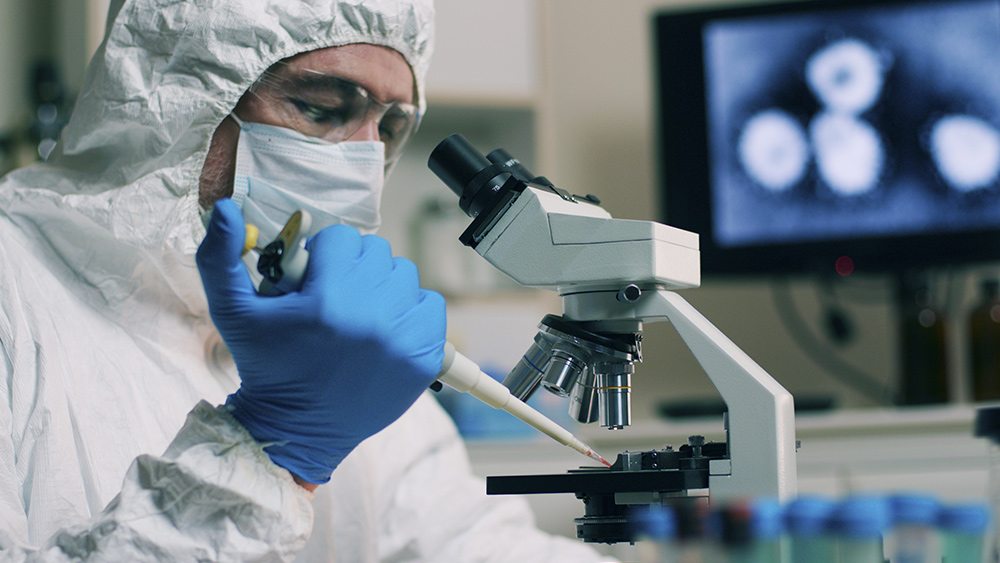Lancet editor silent when asked about the letter he published “debunking” coronavirus lab-leak theory
06/14/2021 / By Virgilio Marin

Richard Horton, the editor-in-chief of the academic journal The Lancet, refuses to tell if he still supports the cover-up letter published by the journal “debunking” the theory that the Wuhan coronavirus leaked from a Chinese laboratory.
Daily Mail asked Horton about his decision to publish and support the letter, amid recent reports encouraging further investigation into the so-called “lab-leak” theory. But he and his office declined to comment on the matter.
The letter, which appeared online in The Lancet in February last year, discredited the theory that the Wuhan coronavirus emerged from China’s Wuhan Institute of Virology (WIV). Instead, the 27 medical experts who were named in the letter suggested that humans contracted the virus from wildlife.
The letter played a key role in quelling early debate on the virus’s origin, but its credibility had been questioned recently due to reports linking the Chinese research facility to Dr. Peter Daszak, head of the research organization EcoHealth Alliance and one of the letter’s 27 signatories.
Daszak’s EcoHealth Alliance received a five-year, $3 million grant from the National Institute of Allergy and Infectious Diseases, which is headed by Anthony Fauci. The organization took nearly $600,000 from the grant and used it to fund gain-of-function research at the WIV.
This type of research involves inducing virus mutations to determine how a virus could cause serious infections in humans. This information, in turn, could allow scientists to find a cure or produce vaccines to prevent future outbreaks. In the case of the WIV research funded by EcoHealth Alliance, the pathogens under investigation were bat coronaviruses.

In the early days of the COVID-19 pandemic, Daszak secretly organized scientists to author and sign the letter rejecting the lab-leak theory, Vanity Fair reported. He also told scientists who worked with the WIV’s lead coronavirus researcher not to sign to cover up the letter’s link to the Chinese lab.
“We’ll then put it out in a way that doesn’t link it back to our collaboration so we maximize an independent voice,” he wrote in an email addressed to the scientists. (Related: Gain-of-function expert Dr. Peter Daszak bullied top scientists into covering up laboratory origins of SARS-CoV-2.)
Weeks after the letter’s publication, Horton praised Daszak in a tweet: “Peter Daszak rejects conspiracy theories about the origins of COVID-19; and he knows more than most of us about coronaviruses.”
Horton also publicly slammed “conspiracy theories” on China’s role in the pandemic, saying that they constituted “Sinophobia.”
“The global emergency of COVID-19 is sharpening the confrontation between China and the west, exacerbated by President Trump’s insistence on referring to the ‘China virus,'” he wrote in The Lancet last July. “The present wave of anti-China sentiment has now evolved into a Sinophobia that threatens international health.”
Letter’s authors speak out about the coronavirus’s origin
Daily Mail also asked the 27 signatories if their initial stance on COVID-19’s origin changed. Three of them responded, including Leo Poon of the University of Hong Kong and Jeremy Farrar, a medical researcher and the director of the charity Wellcome Trust.
Poon said he had no interest in answering non-scientific queries while Farrar still gravitated toward the wildlife explanation.
“The origins of [the Wuhan coronavirus] are not yet certain — it is possible the origin will never be fully established — but nature is a powerful force and, in my view, the most likely scenario is that the virus crossed from animals to humans and then evolved in humans,” Farrar said.
But Peter Palese, a microbiologist from the Icahn School of Medicine at Mt. Sinai, appeared to have softened his original stance.
“I believe a thorough investigation about the origin of the COVID-19 virus is needed,” he said. “A lot of disturbing information has surfaced since the Lancet letter I signed, so I want to see answers covering all questions.”
Palese’s remarks came after The Wall Street Journal reported that three WIV researchers fell ill in autumn 2019 – shortly before the outbreak that launched the pandemic. The researchers displayed symptoms that were consistent with both COVID-19 and common seasonal illness, the news outlet said as per a previously undisclosed federal report. (Related: Chinese virologist: Fauci’s emails proved coronavirus lab-leak theory is right.)
The Wall Street Journal also received details of another report, which was prepared in May last year by the Lawrence Livermore National Laboratory, a federal research facility under the oversight of the Department of Energy. The report concluded that the lab-leak theory is plausible and deserves further investigation, the paper said according to people familiar with the classified document.
Follow Pandemic.news for the latest developments on the Wuhan coronavirus’s origin.
Sources include:
Tagged Under: bat coronaviruses, biological weapons, Censored Science, China, conspiracy, conspiracy reality, conspiracy theories, Cover-Up, covid-19, Dr. Peter Daszak, gain-of-function research, lab leak, lab-leak theory, lies, pandemic, rigged, science clowns, science fraud, Virology, virus, virus engineering, Wuhan coronavirus, Wuhan Institute of Virology




















